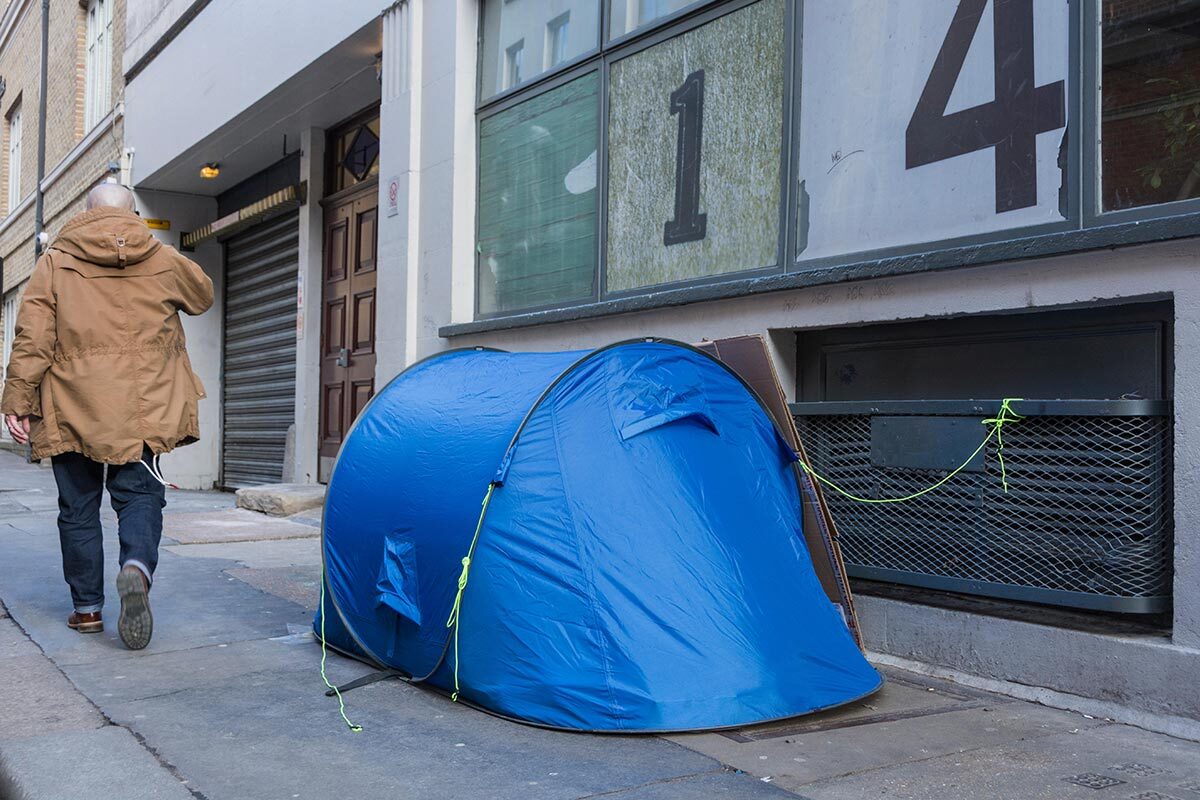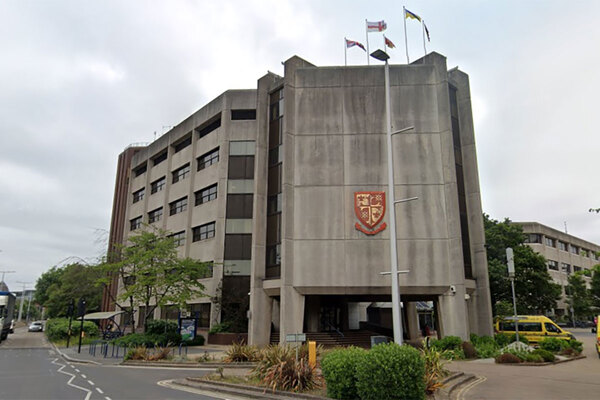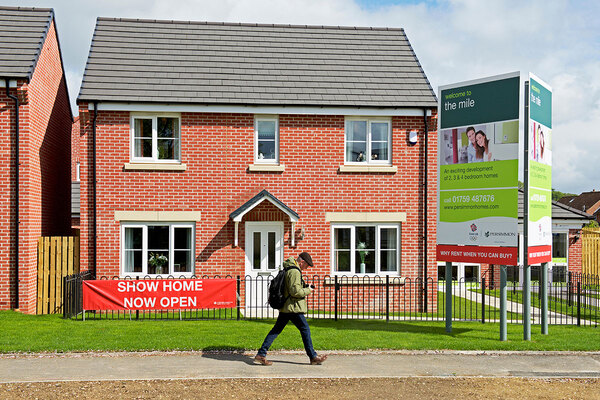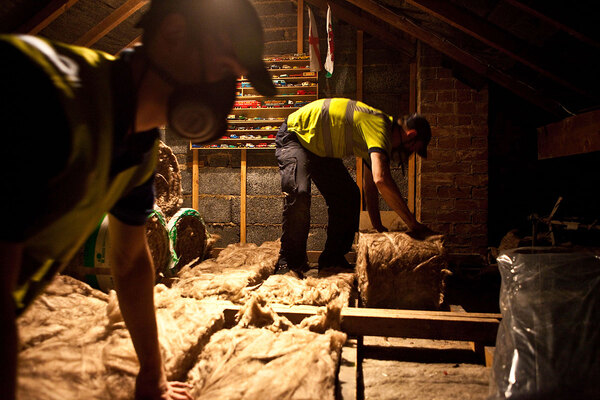
Hannah Keilloh is policy and practice officer at the Chartered Institute of Housing
The economic crisis is at risk of becoming a homelessness crisis
A flurry of reports has warned that the government must intervene to prevent homelessness spiralling out of control, says Hannah Keilloh
The week leading up to the Mini Budget saw several publications from major players in the homelessness sector sending the same warning to the government as the cost of living crisis escalates: “Act now or see homelessness soar.”
Yet despite these bleak predictions, chancellor Kwasi Kwarteng’s ‘fiscal event’ did not provide any of the targeted support for those on low incomes that the sector was urgently calling for.
“I don’t think that it comes as any surprise that the government will not meet its manifesto commitment to end rough sleeping in England by 2024 without urgent and impactful action”
So, what is the situation these new publications are predicting and what does the housing and homelessness sector need to be calling for?
Because one thing is for sure: we must keep the pressure on the government to do more.
On 23 September, the Kerslake Commission published a progress report, A New Way of Working: Ending Rough Sleeping Together, which assessed the advancements toward ending rough sleeping in England against the original recommendations it made in September last year.
The report is clear that the current economic crisis has the potential to escalate into a homelessness crisis too and that once again clear and decisive leadership (as seen at the start of the COVID-19 pandemic in terms of ‘Everyone In’) is required. Without focused support, it is warned, the progress made during and following the Everyone In initiative will be lost.
The All-Party Parliamentary Group (APPG) for Ending Homelessness also published its inquiry report the same week on the government’s progress towards its manifesto commitment to “end the blight of rough sleeping” in England by the end of this parliament.
“We now face a perfect storm of spiralling rents and out of control bills that threatens to push many towards the brink of homelessness”
I don’t think that it comes as any surprise that the conclusion is that although progress has been made, the government will not meet its manifesto commitment to end rough sleeping in England by 2024 without urgent and impactful action, particularly as the ongoing cost of living crisis will force more people into destitution and increase the risk of people losing their home in the coming months.
On the same day as the Mini Budget, Shelter’s Cover the Cost report explained we now face a perfect storm of spiralling rents and out of control bills that threatens to push many towards the brink of homelessness.
Inadequate housing benefit is failing to protect renters from homelessness, with private renters whose Local Housing Allowance (LHA) is falling short of their rent facing terrible choices to avoid falling into rent arrears. With household budgets being squeezed beyond breaking point, the report warned of the risk of a tidal wave of homelessness.
The Department for Levelling Up, Housing and Communities’ own Annual Statutory Homelessness Report was also published in the days leading up the Mini Budget, presenting some concerning trends.
The figures spoke for themselves with increases in the numbers of households assessed as threatened with homelessness, the number of people at risk of homeless from the private rented sector and in the numbers of households with children facing homelessness, and where the lead applicant was in work.
Despite this, it felt like the new administration was firmly looking the other way to this mountain of damning evidence when the Mini Budget was delivered.
Just a few weeks before (admittedly before Liz Truss took the reins), the government launched its long-awaited updated Rough Sleeping Strategy – Ending rough sleeping for good – which was littered with references to a strong focus on prevention. Sadly, the trickledown economics of the new growth plan provided no plan to prevent people at the sharp end of this crisis from falling into destitution and homelessness this winter.
So what next? As a sector, we must keep up momentum on our calls for urgent government action to prevent a homelessness crisis. With a new fiscal plan announcement expected to be brought forward to later this month, there is no time to lose.
If we park the issue of rising energy prices for the moment, I think we need to focus on three key things that the government needs to do to help avoid the wave of homelessness predicted.
First: uprating benefits.
With widespread speculation (and outrage) that the government may renege on the pledge made in April by then-chancellor Rishi Sunak to uprate benefits in line with inflation (based on the Consumer Price Index (CPI) for September) and instead increase them by just 5.4%, it feels like we are teetering on the knife-edge of a devastating blow.
Research from the Joseph Rowntree Foundation (JRF) found that this would amount to “the largest permanent deliberate real-terms cut to the basic rate of benefits in history” and called it “morally indefensible”.
We know benefits are worth markedly less in real terms than they were a decade ago, and if low-income households are to weather the storm of economic crisis, the best way to support them is through the benefits system. Therefore, we must keep calling for the government to address the benefits shortfall and as a minimum fully uprate benefits in line with CPI.
“We must keep the pressure on the government to remove the benefit cap, or at the very least uprate it in line with median earnings”
Second: Local Housing Allowance.
LHA rates have been frozen since 2020, but rents started to increase at an accelerating rate from September last year, leaving people with increasing shortfalls. We must continue to call on the government to restore LHA to cover at least the bottom third of local rents (30th percentile) and return to annual uprating so that support keeps up with real-term costs.
Third: the benefit cap.
The cap has been set at the same level since 2016 (when it was lowered as part of the austerity drive) and hasn’t been reviewed for six years. In that period, there has been inflation in all costs. We must keep the pressure on the government to remove the benefit cap, or at the very least uprate it in line with median earnings to ensure that uprating benefits and the LHA does not lead to more of the hardest-hit households being capped and undermine people’s ability to sustain their tenancy.
The government’s own benefit cap statistics consistently showed that the cap disproportionately affects households with dependent children and particularly single-parent families.
As a member of the Chartered Institute of Housing (CIH) policy team, it would be remiss of me not to say that in the longer term, really the only sustainable solution to address the causes of the housing emergency is investment in truly affordable social homes. As a country we’re not building anywhere near the number of new homes needed.
But in the short term, alongside my colleagues at CIH, I will keep calling for these three keys asks loudly and repeatedly. I urge you to do the same.
Hannah Keilloh, policy and practice officer, Chartered Institute of Housing
Sign up for our homelessness bulletin
Already have an account? Click here to manage your newsletters












